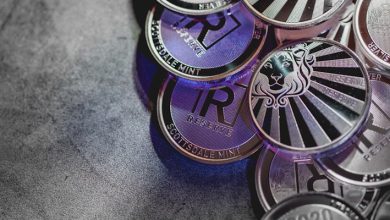The Future of NFT Regulation: What’s on the Horizon

- Understanding the current landscape of NFT regulation
- Challenges in regulating NFTs in a decentralized environment
- Proposed solutions for NFT regulation moving forward
- Implications of NFT regulation on the art and collectibles market
- The role of governments and regulatory bodies in shaping NFT regulation
- Predictions for the future of NFT regulation and compliance
Understanding the current landscape of NFT regulation
Understanding the current landscape of NFT regulation is essential for anyone involved in the world of non-fungible tokens. As the popularity of NFTs continues to grow, governments around the world are beginning to take notice and consider how these digital assets should be regulated. Currently, there is a lack of consistent regulations governing NFTs, which can lead to uncertainty and potential risks for both creators and buyers.
Regulators are grappling with how to classify NFTs and determine the appropriate regulatory framework to apply to them. Some countries have taken a hands-off approach, viewing NFTs as a form of digital art or collectibles, while others are exploring more stringent regulations to protect consumers and prevent fraud. The decentralized nature of NFTs also presents challenges for regulators, as traditional enforcement mechanisms may not be effective in this new digital landscape.
One of the key issues facing regulators is how to ensure that NFT transactions comply with existing laws related to securities, intellectual property, and money laundering. Without clear guidance on these matters, NFT creators and buyers may find themselves unwittingly running afoul of the law. This uncertainty can stifle innovation in the NFT space and limit the potential for growth and investment.
Challenges in regulating NFTs in a decentralized environment
One of the main challenges in regulating NFTs in a decentralized environment is the lack of centralized authority to oversee transactions and ensure compliance with regulations. This decentralized nature of NFTs makes it difficult for traditional regulatory bodies to monitor and enforce rules effectively.
Additionally, the anonymity and pseudonymity of users involved in NFT transactions pose a challenge for regulators in identifying and holding accountable those who engage in fraudulent or illegal activities. Without proper identification measures in place, it is challenging to track down bad actors and prevent illicit activities in the NFT space.
Moreover, the cross-border nature of NFT transactions further complicates regulatory efforts, as different jurisdictions may have varying regulations or lack clear guidelines on how to address NFT-related issues. This lack of harmonization between regulatory frameworks can create loopholes that bad actors can exploit to evade detection and continue their illicit activities.
Furthermore, the fast-paced and ever-evolving nature of the NFT market presents a challenge for regulators in keeping up with new trends and emerging risks. Regulators must adapt quickly to new developments in the NFT space to effectively protect investors and maintain market integrity.
Overall, the decentralized and innovative nature of NFTs presents unique challenges for regulators seeking to establish effective oversight and enforcement mechanisms. Collaboration between stakeholders, including regulators, industry participants, and technology developers, will be crucial in addressing these challenges and ensuring the responsible growth of the NFT market.
Proposed solutions for NFT regulation moving forward
When it comes to regulating NFTs, there are several proposed solutions that policymakers are considering to ensure the market operates efficiently and securely. One option is to establish clear guidelines for NFT platforms to follow, including requirements for verifying the authenticity of digital assets and implementing security measures to protect users’ information. Another approach is to create a regulatory framework that addresses the unique characteristics of NFTs, such as their non-fungible nature and potential for copyright infringement.
Additionally, some experts believe that self-regulation within the NFT community could be beneficial, with industry stakeholders working together to develop best practices and standards for buying, selling, and trading digital collectibles. This collaborative approach could help build trust among consumers and investors, ultimately leading to a more stable and sustainable NFT market.
Furthermore, increased transparency and disclosure requirements for NFT transactions could help prevent fraud and money laundering, while also providing investors with the information they need to make informed decisions. By requiring sellers to disclose relevant details about the digital assets they are selling, regulators can help protect buyers from scams and ensure that NFT transactions are conducted fairly and ethically.
Implications of NFT regulation on the art and collectibles market
In considering the implications of NFT regulation on the art and collectibles market, it is essential to recognize the potential impact that government oversight can have on this evolving sector. As lawmakers around the world grapple with how to classify and regulate NFTs, it is crucial for stakeholders in the art and collectibles market to stay informed and adapt to any new regulations that may arise.
One key aspect of NFT regulation is the potential for increased transparency and security in the market. By establishing clear guidelines for the creation, sale, and ownership of NFTs, regulators can help to mitigate fraud and ensure that buyers and sellers are protected. This increased level of trust could lead to a more robust market for digital art and collectibles, attracting a broader range of investors and collectors.
On the other hand, overly restrictive regulations could stifle innovation and limit the growth of the NFT market. As lawmakers work to strike a balance between protecting consumers and fostering creativity, it will be crucial for them to consult with industry experts and stakeholders to develop regulations that are both effective and practical.
Furthermore, the global nature of the NFT market presents a unique challenge for regulators. As NFTs can be bought and sold across borders with ease, it will be essential for regulators to coordinate their efforts to ensure a cohesive and effective regulatory framework. Failure to do so could result in regulatory arbitrage, where market participants seek out jurisdictions with lax regulations to conduct their NFT transactions.
Overall, the implications of NFT regulation on the art and collectibles market are complex and far-reaching. While well-crafted regulations have the potential to enhance trust and security in the market, overly restrictive measures could hinder innovation and growth. As this nascent market continues to evolve, it will be essential for regulators to strike the right balance to foster a healthy and vibrant ecosystem for NFTs.
The role of governments and regulatory bodies in shaping NFT regulation
The role of governments and regulatory bodies in shaping NFT regulation is crucial in determining the future landscape of this rapidly evolving market. As the popularity of NFTs continues to grow, governments around the world are starting to take notice and consider how to regulate this new asset class. Regulatory bodies such as the Securities and Exchange Commission (SEC) in the United States and the Financial Conduct Authority (FCA) in the United Kingdom play a key role in overseeing the NFT market and ensuring that investors are protected.
Government intervention in the NFT space can take many forms, from outright bans on certain types of NFTs to the imposition of strict regulations on how NFTs can be bought and sold. Some governments are also exploring the possibility of creating their own digital currencies to compete with NFTs and other cryptocurrencies. These efforts could have a significant impact on the future of NFT regulation and the broader blockchain industry as a whole.
It is important for governments and regulatory bodies to strike a balance between protecting investors and fostering innovation in the NFT space. Overregulation could stifle growth and drive NFT projects underground, while underregulation could leave investors vulnerable to fraud and manipulation. Finding the right regulatory framework for NFTs will be a delicate balancing act that will require collaboration between governments, industry stakeholders, and the broader community.
Predictions for the future of NFT regulation and compliance
As the popularity of NFTs continues to grow, there is an increasing need for regulation and compliance in this emerging market. Government agencies around the world are starting to take notice of NFTs and are considering how they should be regulated. Predictions for the future of NFT regulation and compliance vary, but there are a few key trends that are likely to emerge.
- Increased scrutiny from regulatory bodies: As NFTs become more mainstream, regulatory bodies are expected to increase their oversight to protect consumers and prevent fraud.
- Collaboration between industry stakeholders: To ensure compliance with regulations, industry stakeholders such as NFT platforms, creators, and investors may need to work together to establish best practices.
- Development of new laws and guidelines: In response to the growing popularity of NFTs, governments may introduce new laws and guidelines to address the unique challenges posed by this technology.
- Focus on investor protection: Regulators are likely to prioritize investor protection in the NFT market to prevent scams and ensure transparency.
- Global coordination on regulation: Given the international nature of NFTs, there may be increased efforts to coordinate regulation on a global scale to ensure consistency and effectiveness.
Overall, the future of NFT regulation and compliance is still uncertain, but it is clear that there will be increased oversight and collaboration among industry stakeholders to ensure the long-term viability of this market. It is important for all participants in the NFT space to stay informed about regulatory developments and be prepared to adapt to changes as they arise.



